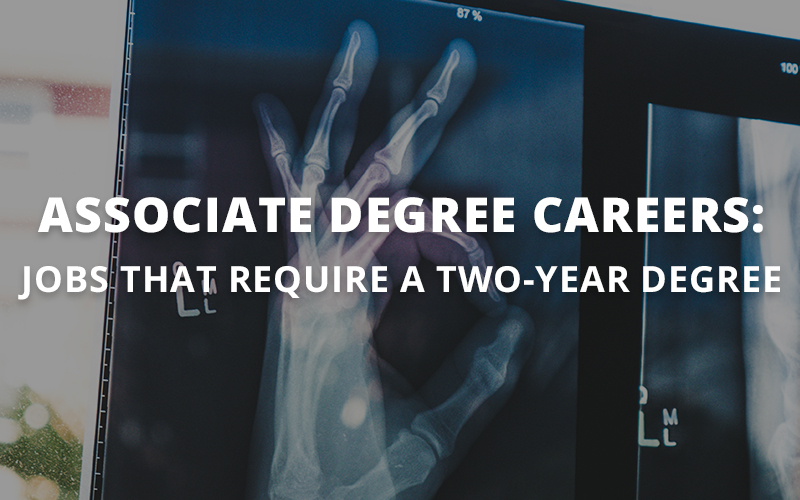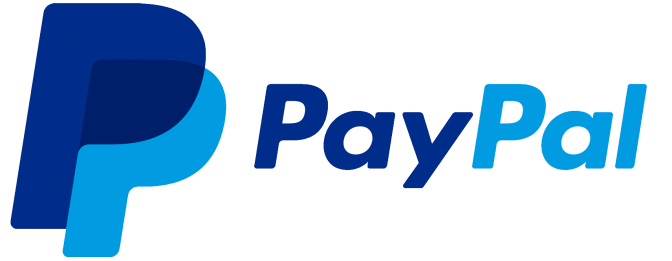Financial Aid
Complete Guide to Become an Accountant Without an Accounting Degree
Accounting is a profession that requires specialized knowledge and skills in financial management, analysis, and reporting.
Many people believe that becoming an accountant requires a formal accounting degree or a related field, but this is not entirely true.
In fact, there are several paths to becoming an accountant without an accounting degree, and this guide aims to provide a comprehensive roadmap to anyone who wants to pursue a career in accounting without having to go through the traditional education system.
This guide will explore the different options available, including self-education, certification programs, on-the-job training, and apprenticeships.
It will also cover the necessary skills, knowledge, and qualifications required to become a successful accountant, as well as the various career paths available in the accounting industry.
Whether you are a recent graduate or someone who wants to switch to a career in accounting, this guide will equip you with the necessary tools to achieve your professional goals.
Is an accounting degree required to work as an accountant?
To begin, you do not need to complete a four-year accounting degree to become an accountant.
This is why: Accounting is a hands-on craft that you can readily learn on the job to create a good foundation in. Accounting certifications can provide you with the necessary training for the job.
The thing is, you may begin as an accounting clerk or junior financial accountant, preparing journal entries for each reporting cycle.
This manner, you will obtain the fundamental abilities required to advance up the Accounting career ladder.
Can I work as an accountant without a degree?
To begin with, accountants manage money, and in order to get that position, you must be quite excellent with numbers.
You will be responsible for purchasing, budgeting, payroll, and even financial reporting. You could also do a financial audit.
A strong degree of numeracy skills and sound analytical abilities are required whether you work in financial accounting, tax accounting, or as a management accountant.
You must also be truthful and detail-oriented.
How to become a CPA without an accounting degree
You don’t have an accounting degree, or you’re looking for a second job in accounting?
Or do you need to add that CPA license to your resume in order to advance your career?
Or perhaps you simply want to learn something new? In any case, we both know that you must take the CPA exam in order to become a Certified Public Accountant.
The good news is that, unlike accounting graduates, you do not need a degree in accounting to become a CPA.
This, however, is not without its difficulties.
You must understand that the CPA exam is challenging, and there are educational prerequisites that must be met before you can sit for it.
CPA requirements include “the three Es.” This includes schooling, tests, and work experience.
Minimum accounting credit hours and equivalent experience are required.
This is the difficult part if you are not an accounting major.
Most states demand 150 college credits, which is higher than a Bachelor’s degree’s 120 credits.
This means that as an accounting major, you will need to take additional courses to complete the remaining 30 credits.
Yet, these are state-specific considerations.
Most states that have lower credit hour requirements will have higher experience requirements.
For example, you can take the CPA exam without a degree if you are already working in an accounting role.
Similarly, with a degree in Finance or Economics, it may be possible to obtain the CPA. But, obtaining your CPA will be considerably more difficult if you have no degree at all.
Find out more about CPA for non-accounting majors and where you fit.
After all is said and done, a well-thought-out study plan with realistic objectives should set you up for success.
Getting a CPA requires meticulous planning and dedication, especially if you do not have a degree in accounting.
Furthermore, a coaching system and a rigorous CPA Test Study can provide you with the resources you need to fully prepare for the CPA exam.
Just remember to be focused and motivated in order to obtain your CPA accounting degree.
Must Read: Work as an Accounting bookkeeper at Can-Best Tire Services Ltd
How to Become an Accountant Without a Bachelor’s Degree
It may interest you to know that even if you have a college degree in accounting, you must still obtain vocational certifications after graduation.
While a degree provides you with essential theoretical knowledge in a discipline, it does not provide you with the necessary practical skills for a successful profession.
Certainly, there are ways to become an accountant without an accounting degree, but it may be difficult for you.
To begin with, you cannot become a Certified Public Accountant (CPA) without a four-year degree.
Nonetheless, the following are some accounting positions you could pursue to obtain work experience in the field before finishing your degree:
- Preparation of tax returns.
- Accountant’s assistant.
- Bookkeeper.
- Clerk for auditing.
- Administrative support.
- Collections.
The prerequisites for the aforementioned chances include both formal education and on-the-job accounting training.
You will require GCSEs from high school as well as some college credits.
Basic bookkeeping and accounting courses, as well as classes on the use of spreadsheets and other accounting software, are examples.
Basic math and computer abilities are also required.
On-the-job training can last up to six months, although your training program will vary based on the size of the organization you are training with.
A small corporation, for example, may pair you with an experienced coworker, but a large organization will put you through a rigorous accounting training program.
What credentials do I need to become an accountant?
The problem is, you may become an accountant without an accounting degree, but there are some qualities that will get you in the door.
There is no requirement for certain BTECs or A levels, however math and economics are a plus.
Let’s go over the many credentials you’ll need to become an accountant.
AAT certification is a mandatory requirement.
The AAT is the entry-level qualification for most types of accounting.
It is regarded as a basic qualification.
You can still pursue higher-level degrees such as ACA, ACCA, or CIMA to become a chartered accountant.
How do I Obtain Accounting Certificates Online Without a College Degree?
The good news for non-accounting majors is that you can still become an accountant without a degree in accounting.
Accounting certificate programs teach you fundamental accounting abilities in a far shorter time frame than a complete degree program.
That means you may get your accounting credentials quickly and obtain real-world skills in a competitive work environment.
If you have a certain professional route in mind, you should pursue preferred qualifications for the specific specialization you seek.
The London Training for Excellence website has more information about accounting courses.
How to gain an Online Accounting Certificate in 2023
Look for a properly accredited program.
This assures that the curriculum is of excellent quality.
Explore the available courses.
It is advised that you enroll in a certificate program that provides both broad accounting courses as well as practical chances to tailor your learning experience with some free electives.
Enroll in an accounting certification program with excellent student assistance.
Pick a program that is a good fit for your life and aspirations, not just the curriculum.
You should inquire about the whole student experience.
The benefit of online classes is that you may customize the entire learning experience.
You can access classes and submit assignments at any time, and you can expect prompt grading and constructive feedback from your teacher.
Most online accounting credentials should take between five and a year to complete, with three to seven needed courses.
You can study part-time or at your own speed while juggling other duties.
The majority of accounting certificate programs include nine to 21 credits of curriculum, with an emphasis on accounting fundamentals and specific accounting computer programs.
Some schools may train you to take certification examinations in software applications, which can be an additional qualification for your resume.
Some online accounting programs will also provide specialized online accounting courses or unique fields of study.
Aside from accounting courses, some certifications include one or two additional courses in basic educational foundations, such as English writing, to provide you with office-ready abilities.
However, for some certificate programs, your courses are predetermined, but others allow you to select from a menu of accounting courses.
Trending: Jab as an accounts clerk at Feldcamp Equipment Limited in Canada
Top 10 Accounting Certifications you can get without a College Degree in 2023
Some accounting qualifications can be obtained without a college degree, but others may not be viable.
Because of the prestige associated with these credentials, you may be able to work in accounting without them, but you will be unable to obtain your accounting certification until you meet the prerequisites listed below.
1. AAT Certifications
The Association of Accounting Technicians is the UK’s leading professional association for qualifications in accountancy and finance.
Because the course provides you with the practical skills and information required for a successful career in accountancy and finance, the AAT certificates are worldwide recognized and highly sought after by companies.
The three levels of this accounting certification have three qualifications.
That is, a Foundation Certificate in Accounting, an Advanced Diploma in Accounting, and a Professional Diploma in Accounting are all available.
On the qualifications and credit structure, each AAT qualification has an equivalent.
The Foundation Certificate in Accounting is similar to GCSE level studies, and there are no formal entry criteria; nevertheless, you must be over the age of 19.
The course covers the fundamentals of bookkeeping, accounting software, and costing.
You must study 5 units and take 5 tests.
You can become an AAT licensed member and run your own bookkeeping or accounting practice after learning AAT. Discover how.
You can also apply for entry-level positions such as accounts administrator, accounts assistant, or accounts payable clerk.
2. EA Certification
You do not need any education or experience to take the Enrolled Agent (EA) exam as a candidate.
This makes this accounting certification appealing to the majority of people who wish to work in the profession but do not have an accounting degree.
The EA test and role, on the other hand, come with a lot of responsibilities.
According to the National Association of Enrolled Agents (NAEA), an enrolled agent is a tax practitioner who specializes in taxation.
So you’re a tax attorney who represents clients before the IRS. Yet, one advantage of this accounting certification is that it does not require a degree to obtain. Learn more about how and why you should become an EA.
3. ACCA Certifications
The qualification of the Association of Chartered Certified Accountants is a worldwide recognized accounting certification.
The ACCA curriculum focuses on reporting, auditing, taxation, leadership, financial management, and ethics.
It is divided into two levels: Fundamentals and Professionals, with up to 13 tests in each.
Eligibility is open to anybody with a high school diploma.
Throughout its program, the ACCA will provide courses that are equivalent to university study.
This accounting qualification costs around £2,000 and takes approximately three years to complete.
The pass percentage for ACCA varies due to the numerous exams, although it ranges from 30% to 80% depending on the exam.
This accounting certification, on the other hand, takes far longer than the CMA curriculum.
Nonetheless, ACCA is the finest option if you want to become a Chartered Accountant.
Furthermore, if you work in a country where chartered accountants are highly respected, the ACCA credential will provide you an advantage.
Please check additional information on whether the CMA or the ACCA is better for you.
4. CFP Certification
Those interested in a career in investing or wealth management should pursue the Certified Financial Planner certificate.
CFPs primarily specialize on financial planning, high-net-worth individuals, and the retail side of investment management.
The CFP, on the other hand, is less transferable to other finance jobs since, despite its broad coverage of wealth management, its focus is narrow.
The CFP test is divided into two tiers and two exams.
As part of the CFP process, you must also complete an FPSC (Financial Planning Standards Council) Level 1 qualification.
CFP certification costs $2,000 and takes four years to complete. The exam pass rate is approximately 67%.
5. CMA Certification
The Certified Management Accountant (CMA) credential opens doors to better-paying positions.
The accounting certification delves deeper into financial accounting while including strategic management features.
CMA is concerned with educating the fundamental reasons that underpin a company’s financials as well as the strategic business decisions that may be drawn from them.
Nonetheless, keep in mind the prerequisites for becoming a CMA, including education.
The CMA requires that you have at least one of the following educational statuses:
- Get a Bachelor’s degree from an authorized institution or university in any discipline.
- You should have a professional certification.
- You can take the exam before finishing your degree, but you should get it.
This is due to the fact that once done, you will be required to submit proof.
To take the CMA exam as a student, you must be registered for at least 6 credits per semester during the academic year.
Students can take the CMA exam before finishing their degree, according to the Institute for Management Accountants (IMA).
Nonetheless, you must transmit a proof of your degree to the Institute of Certified Management Accountants within 7 years of taking the CMA exam (ICMA).
CMA fees range from $850 to $2,500, depending on whether you are a professional or a student, and whether you purchase extra study materials.
The pass percentage for the CMA exam is between 40 and 50%.
See Also: Complete Guide on How To Become An Accredited Investor
6. CPA Certification
As previously said, obtaining a CPA without an accounting degree will be significantly more difficult than obtaining a CMA.
The CPA, on the other hand, is one of the “must-have” certificates for a career in accounting.
Its curriculum includes financial accounting and reporting, auditing, the corporate environment, principles, regulation, and attestation.
Some educational prerequisites will necessitate further effort on your part. This is explained by the three Es’.
Education, examination, and experience are all required. To take the CPA test, you must have a minimum of accounting credit hours and related experience.
Obtaining the necessary experience may be difficult for non-accounting majors.
Most states demand 150 college credits, which is more than a Bachelor’s degree’s 120 credits.
Regardless of the distinction, keep in mind that most states with lower credit hour needs will have greater experience requirements.
If you already work in an accounting role, you may be able to take the CPA exam without a degree.
In some situations, obtaining the CPA with a Finance or Economics degree may be attainable.
But, if you don’t have a degree, this will be considerably more difficult.
The CPA is a single exam with four portions, each of which is tested separately as its own exam.
The program will cost you between $1,000 and $3,000 to complete, depending on your study program and jurisdiction.
The pass percentage for the CPA exam is usually around 50%.
7. CIA Certification
The same is true for the Certified Internal Auditor (CIA) test as it is for the CMA.
The CIA exam can be taken without a degree, however it is far more difficult than the CMA.
This certification is mostly for compliance officers and auditors, with many CIAs working for a larger organization that handles audit procedures.
Before you may take the CIA exam, you must complete certain educational prerequisites.
The IIA requires CIA candidates to have at least an associate’s degree or higher, or the equivalents listed below in lieu of an associate’s degree:
- Three A-level certificates with a C or higher.
- National Diploma (HND).
- A higher education diploma.
- Bachelor’s Degree.
If you still do not match the above conditions, there is an alternative to CIA eligibility available through the IIA.
Candidates having at least 7 years of verifiable expertise in internal auditing or its equivalent may be approved by the IIA.
To obtain the CIA certification, you must pass all three portions of the CIA exam, which takes 6.5 hours to complete. Learn more about the CIA exam prerequisites.
8. CAIA Certification
The Certified Alternative Investment Analyst (CAIA) certification is a finance qualification specializing in alternative investing.
This top accounting qualification is aimed for persons interested in working in the asset management and hedge fund industries.
CAIA addresses issues like as private equity, risk management, asset allocation, hedge funds, ethics, structured products, commodities, and real estate.
Although less versatile than other accounting qualifications, the CAIA is useful if you work in finance, specifically for handling alternative investments such as real assets.
There are no educational or employment requirements to take the CAIA exam, however you will not be certified until you have obtained your Bachelor’s degree and have one year of work experience.
Alternatively, you have four years of job experience but no degree.
Its exam consists of two levels and two exams, and it will cost you approximately $3,000 for one to two years of study.
Level I consists of 200 multiple-choice questions covering eight different subjects.
There are 100 multiple-choice questions and three essay questions on Level II. The CAIA exam is passed by around 70% of candidates.
9. CFA Certification
The Chartered Financial Analyst (CFA) accreditation is a worldwide recognized and sought-after finance credential.
When firms hire financial analysts, it is frequently utilized as a filtering technique.
While being comprehensive, the CFA exam has an extremely low pass rate, which may be due to the extensive topic evaluated.
This accounting qualification is primarily concerned with investment analysis and portfolio management.
Financial reporting and analysis, fixed income, quantitative methods, alternative investments, equity, economics, derivatives, and ethics are among the topics covered.
The program‘s three levels should take you about four years to finish and can cost between $4,000 and $5,000.
This is determined by whether or not you need to retake examinations and how early you register for them.
Each exam has a pass rate ranging from 30 to 50%. As a result, the overall pass rate for the program is roughly 20%.
10. CGMA Certification
The American Institute of Certified Public Accountants (AICPA) and the Chartered Institute of Management Accountants jointly established the Chartered Global Management Accountant (CGMA) designation (CIMA).
It is an internationally recognized accounting qualification that focuses on issues like as reporting, financial and management accounting, and strategy.
CGMA has three levels, each with three courses and their own tests.
In addition, at the end of each level, you must pass a case study test.
This adds up to 12 CGMA examinations.
The credential should take three to four years to earn and will cost between $3,000 and $5,000.
This includes the obligatory AICPA membership.
The expenses will continue to fluctuate depending on how long it takes you to complete your CGMA.
Exam pass rates for first-time participants range from 50 to 88%, depending on the exam.
11. ChFC Certification
The American College of Financial Services awards the Chartered Financial Consultant (ChFC) qualification in finance.
The ChFC credential is an alternative to the CFP credential, but it is less well-known.
This accounting certification addresses a wide range of financial planning issues, including income tax planning, insurance planning, and retirement planning.
Unlike the CFP, tests are given at the end of each course in ChFC.
You will need to complete eight courses and eight tests over the course of six to nine months at a cost of $5,400.
The ChFC exam pass rates have not been made public.
The Corporate Finance Institute website has more information on the aforementioned accounting credentials.
Conclusion
In conclusion, becoming an accountant without an accounting degree is possible, but it requires dedication, hard work, and a willingness to learn.
With the right combination of education, certification, and work experience, individuals can gain the skills and knowledge needed to succeed in the accounting profession.
The path may be challenging, but the rewards can be significant, including job security, career advancement, and financial stability.
It is essential to remember that ongoing education and professional development are necessary to stay up-to-date with changing regulations and best practices.
With the right mindset and commitment, anyone can become a successful accountant, regardless of their educational background.
Click the button below to Gain Access to our Members’ Exclusive Group, before it fills up again.
Gain Access Now!
See what others are reading:
- Complete Guide on How to Become QuickBooks Certified
- Work as an Accounting bookkeeper at Can-Best Tire Services Ltd
- Work as a Digital Marketing Account Manager at TRL Solutions Inc













